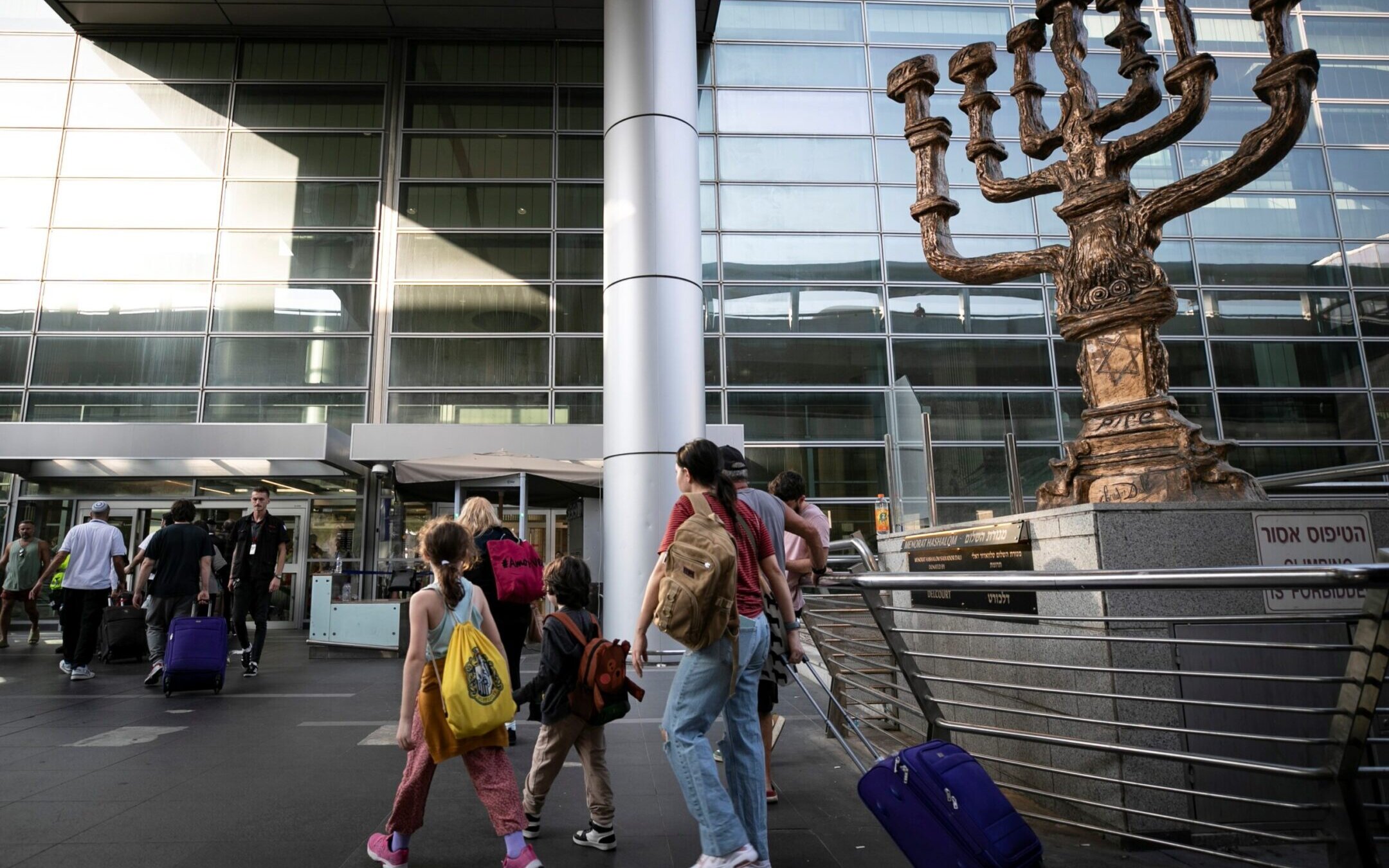Argentina, Canada, other countries plan airlifts to help their citizens leave war-torn Israel
So far, most people in the country who wish to leave are on their own to do so, and many flights have been canceled, making it hard to get out

Travelers are seen at Ben Gurion International Airport near Tel Aviv, Israel, Oct. 8, 2023. International airlines delayed or cancelled their flights to and from Israel after an attack by Hamas triggered a war (Chen Junqing/Xinhua via Getty Images)
(JTA) — Argentina is launching an airlift to evacuate its citizens from Israel, four days after Hamas attacked Israel, killing and wounding thousands of people and spurring a war that could be long-lasting.
The Foreign Ministry opened a hotline on Saturday, the day of the attack, for Argentinian citizens to request repatriation. Foreign Minister Santiago Cafiero said on Tuesday that more than 713 requests had been received.
Now, the “Safe Return” program will allow up to 625 people to leave the country. A military Hercules airplane and a Boeing jet will be deployed first to Cyprus and then to Tel Aviv. On Thursday, three flights will take off from Tel Aviv to Rome, each carrying about 200 people.
“There are people who were there for tourism, for work, for studies and others who have been living for a long time,” Cafiero told the national news agency Telam.
So far, most people in Israel who wish to leave are on their own to do so, and many flights have been canceled, making it hard to get out.
The decision to evacuate expatriates, which tends to be made in only the most extreme and dangerous circumstances, reflects a growing realization that the war launched in response to the attack could be long and grueling. Argentina is not the only country to send planes to retrieve its citizens: Poland and Australia, for example, have said they would evacuate citizens who want to exit the country. Canada plans to announce an evacuation effort, using military planes and with special provisions for people who cannot safely get to Israel’s international airport, on Wednesday.
The airlift by Argentina — home to an estimated 180,000 Jews, the sixth-largest Jewish population in the world — is especially notable because until this week, the country held the ignominious record of being the site of the worst terrorist attack on Jews since the Holocaust. Eighty-five people died in the 1994 bombing of the headquarters of AMIA, Buenos Aires’ Jewish community center, which like the Hamas attack is widely understood to have been carried out in collaboration with Iran.
Jorge Knoblovits, president of DAIA, Argentina’s Jewish umbrella organization, decried Hamas during a massive rally in Buenos Aires, outside a Jewish community center at the corner of Avenue Estado de Israel and Avenue Estado de Palestina. The group, he said, aimed to destroy not only Israel “but all of us, all Jews, anywhere in the world.”
The demonstration, one of dozens that have taken place around the world in support of Israel this week, occupied two full blocks and drew prominent figures including the U.S. ambassador, the city mayor and Patricia Bullrich, a candidate for president in this month’s election. Moshe and Sara Korin, whose son Abi has not been heard from since the attack on his kibbutz, also appeared at the rally.
A number of Argentinian expatriates were killed in the Hamas attack, all on kibbutzes in Israel’s south that were popular destinations for South Americans who moved to Israel. According to the Foreign Ministry’s latest data, Argentina has confirmed seven deaths among its citizens and 15 remain missing.
This article originally appeared on JTA.org.














